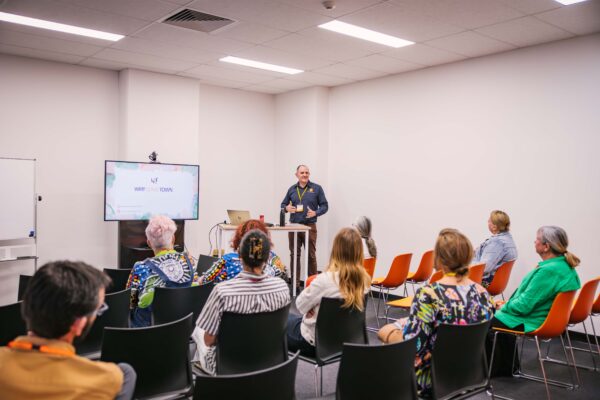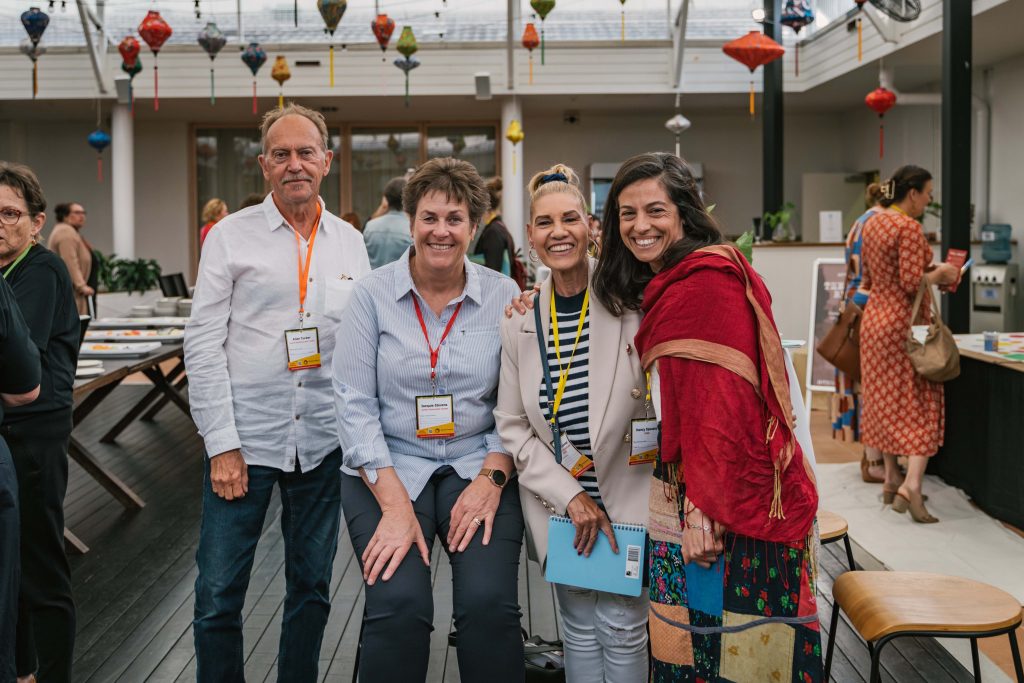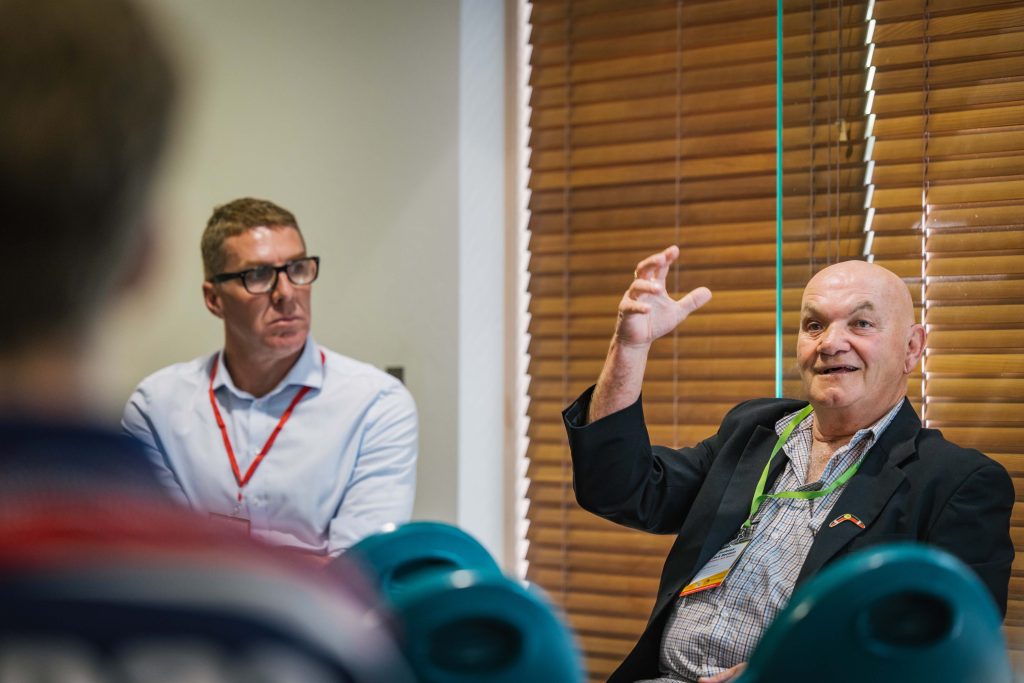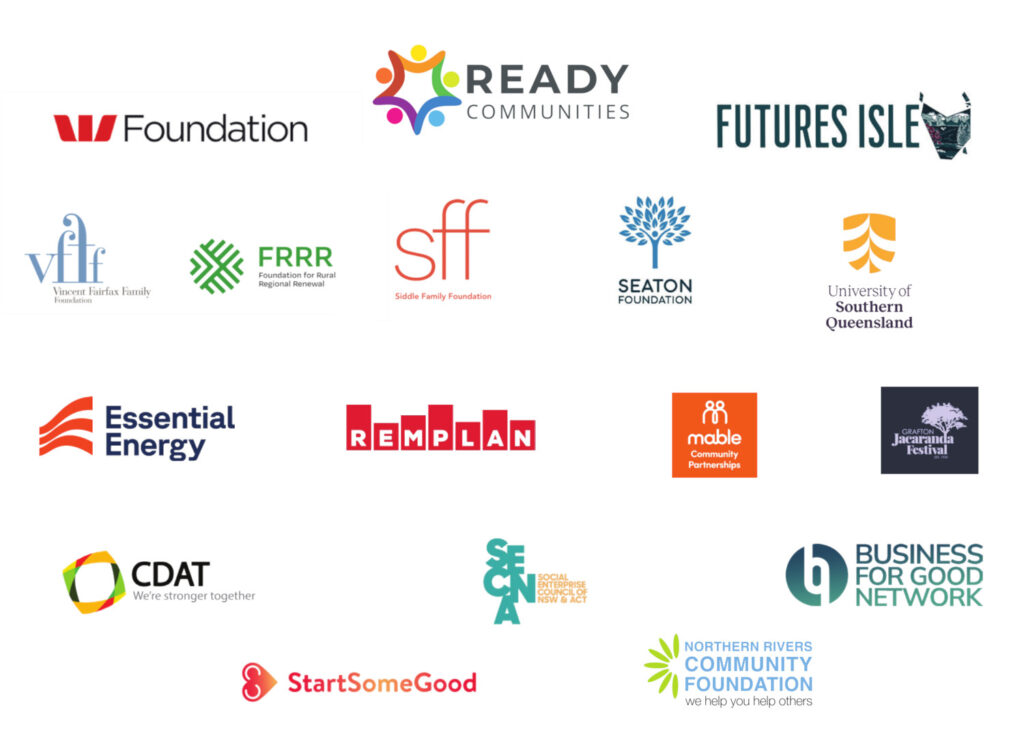Local procurement is another important Social Impact in the Regions principle. In fact. In 2024 of our conference spend (not including wages and admin) of $99,599.60, 80% was spent within the local region, and 41% of this directly in the host community.
Some other cool outcomes:
- 96% of our spend was with small to medium enterprises
- 11% with not for profits / social enterprises
- 20% with creative industries businesses
- and 96% of the total spend with regionally based businesses
Those numbers make a difference on someone’s dinner table.
Our catering spend (31% of the budget) was allocated primarily between eight different cafes / caterers including our lead in this area, Mangiato who worked alongside us from the beginning ensuring we had access to fresh local produce and our conference social events were a hit.
On the first two conference days we took our delegates into the CBD with options to dine in one of six cafes throughout town. Even though these numbers and the quick turnaround were out of the norm for most of the cafes they handled it well with minimal hiccups. Our delegates loved both the movement and also getting out into the host community (and shopping):
“I love the use of local businesses for lunch. I want to say I am very happy I attended SIITR 2024. I have grown in my ability to harness my strengths and feel empowered to make my ideas for change a reality.”
“Nice to be out of a regular Conference Venue”
Three local caterers collaborated for our morning teas and a further three at the Gala conference dinner. These partnerships all play a role in better enabling the host community to scale up to deliver larger events.
Social impact isn’t only the domain of not for profit services. In regional communities the role of small business is more than just selling wares to a town. It’s the small businesses who provide our kids with the first jobs and valuable work experience opportunities, they are often called upon to support local fundraising activities and they also play an important role in community building.
When we started delivery of the Ready Communities (Ready Macleay) program in Kempsey in January we counted 32 empty shops in the CBD alone. It’s not only the local economy that suffers when the shops are empty to this extent, when we met with local retailers they told us they felt unsafe in the CBD and that it had lost it’s vibrancy and as a result shoppers just weren’t coming like they once did.
We set CBD activation as one of our key themes and in doing so linked local retailers and the Chamber to Ashley Watt (Ash) CEO of Shop Local program, Why Leave Town. The community have embraced the program and are now in the final stages of getting their own shop local program kicked off.
Ash travelled across to Kempsey to attend the conference and met with both local retailers and conference delegates. There isn’t much Ash doesn’t know about activating main streets and encouraging people to shop locally. We look forward to including him in future SIITR conferences and Ready Communities programs.

Whether you are a delegate or a regional conference organiser, your conference spend goes a long way in a regional community.




